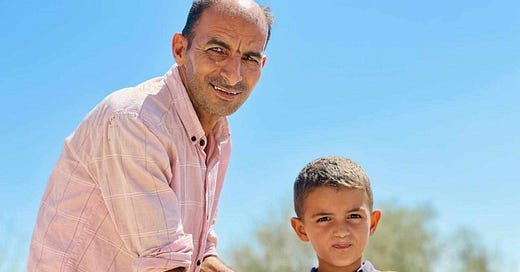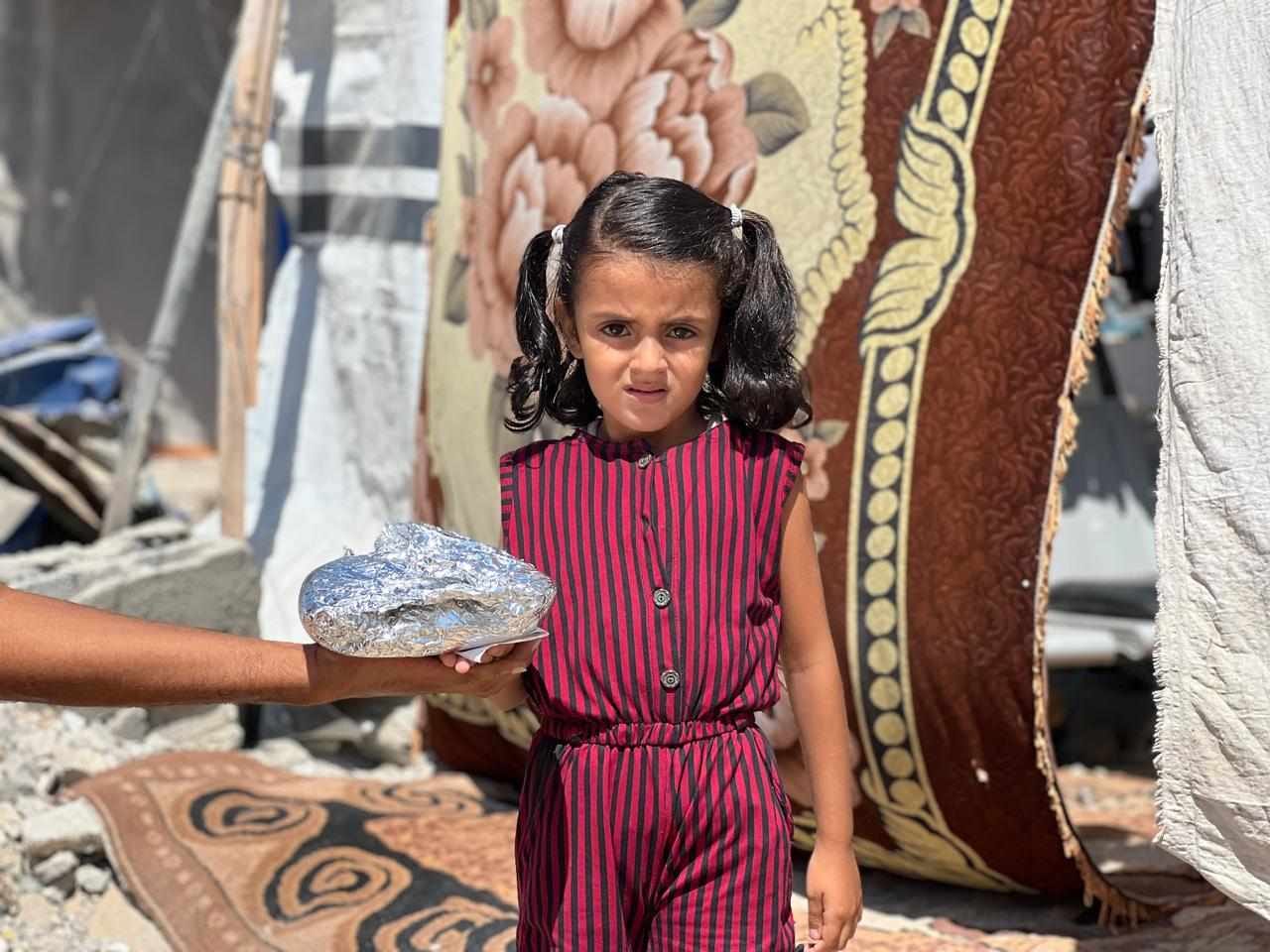In the Midst of Horror: Choosing Humanity, Grief and Solidarity
Updates about Ayman and Youth Without Borders
I woke up yesterday morning to a message from Ayman, who has just survived another attack. In the middle of the night, a horrific device—manufactured in my homeland, tearing through his homeland with lethal force. It landed in the so-called "safe zone," spewing toxic contents as it ripped apart dozens of people asleep in their refugee and left craters in the earth that mirror the depth of sorrow in people’s hearts.
In his first messages, Ayman shared just a few grim details of what happened in the camp. And yet I am so grateful to hear from him. Every day I check to see when he was last “seen online” just to know if he’s alive. I feel ashamed to ask him directly, and yet sometimes I can’t sleep until I know he’s made it through another night of this brutal campaign to dismantle the very fabric of his community’s existence.
I’m sharing this with all of you because I believe it’s important for you, as my friends and as supporters of Ayman and his organization, Youth Without Borders, to know. As many of you know, their youth development center—a symbol of hope and resilience throughout the 18-year Israeli siege on Gaza—was destroyed months ago. Some of us watched it together. The video shot by an Israeli soldier cheering as the entire building came down as if he was watching a monster truck show.
Yet, despite the ongoing horrors, Ayman and Youth Without Borders continues with relentless, fierce determination. Just last week, Ayman sent me photos of the soup kitchen they managed to open —a lifeline for those in need, sustained by the collective support of many of you.
...
Everyday, we are reminded of the fragility of life in the face of such overwhelming violence. I know that many of us hold Ayman and Youth Without Borders close to our hearts. My colleagues and friends have become your friends too, and together in this horrible time of separation our lives have become more intertwined as we’ve moved beyond the headlines together. Knowing Ayman has become a way of connecting with both hope and despair.
Though for years I have turned stories of horrific situations into human rights reports and advocacy messages — and while I know that work is still vital — right now it does not feel like the most meaningful way I can contribute. Instead, I want to be radically present with you all and share this moment with you as it is—a moment of profound grief. It needs to be honored and protected, so that we might have the chance to transform into into resilience instead of experience it as repression.
In this moment, I ask that you take the time to feel the profound grief of this ongoing loss. I also encourage you, as is the tradition when someone is grieving, to reach out and connect with those who are suffering, including Ayman. Even in the face of so many attempts to sever our bonds, we can continue to strengthen our connections and navigate this ongoing horror with authenticity.
Just as Ayman reached out to me, I hope we can reach out to him. Let this moment of horror become one of connection and community. Our long-term efforts for change will only be sustained if we take the time to grieve and express our gratitude to one another for our lives.
You can also continue to support Ayman and Youth Without Borders through donations on their Go Fund Me page.
Post Script:
I decided to write to Ayman just as I was finishing the first draft of this piece. I wrote him to reiterate to him that he is one of the most remarkable people I have ever known—that he was also before the genocide and continues to be now. I shared with him how furious I am that this horrific, shameful situation continues. I told him again how grateful I am for his friendship and for the humanity he has shown me over all these years.
He wrote back immediately to thank me. He told me that he is so grateful for the love, respect and compassion I shared with him. And then he opened up more and shared with me the news that his wife’s cousin, husband, their children, the wife of her cousin and her children were all murdered.
In Palestinian culture when someone dies, family, friends and relatives reach out to offer their condolences by commenting on posts and sending private messages. I believe that if we are holding Ayman and his family in our hearts, that they would indeed like to hear from us and our hearts. They would like to know that even though the lives of their loved one’s are not making headlines, that they have made our heart lines.





